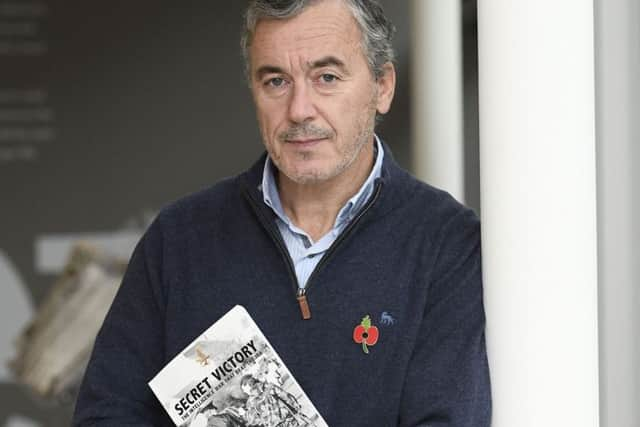William Matchett: Bias was an issue in Loughinisland case but not for judge


Perception is opinion prone to prejudice, not proper understanding gained through thorough reasoning. It is not fact or evidence.
Up until the 18th century the law was one-sided. The accused had no speaking rights.
Advertisement
Hide AdAdvertisement
Hide AdProsecutors exploited the unfairness. Appealing to the mob was routine. Perception was rife and miscarriages of justice common.


In the Troubles, a Provo organisation that waged a war against the people tainted police officers as bigots in league with violent Protestants. The perception got traction in nationalism with an SDLP leader who did not support the police.
Unsurprisingly, therefore, when loyalist terrorists murdered six innocent Catholics in Loughinisland in 1994 the perception of the victims’ relatives is that police officers ‘colluded’ with the killers.
When Police Ombudsman Al Hutchinson tested this against rigorous reasoning. He exposed it as false. The result. His credibility was attacked. He resigned.
Advertisement
Hide AdAdvertisement
Hide AdIn a second investigation, his successor Dr Michael Maguire overturned the finding. This is what the relatives wanted. But it was challenged by retired police officers in a judicial review.


They argued the report had no evidence to support a ‘collusion’ finding, which was unlawful and a product of procedural unfairness.
Mr Justice McCloskey agreed.
In plain language, it was wrong for the ombudsman to publish a report to blame those he accused, thereby denying the accused persons the right to defend themselves. And it was wrong to do so in absolutist terms with a word that has no standing in law and strongly implies serious criminality.
If I introduced this in a criminal justice project in a developing nation, Amnesty International would be outraged, and rightly so.
Advertisement
Hide AdAdvertisement
Hide AdInstead of accepting the judge’s ruling the ombudsman retorted with a new QC and recusal application, supported by an interested party: the relatives and their legal team.
Mr Justice McCloskey’s independence was questioned. He stood aside. Another judge will complete the judicial review, hopefully this month.
The question is: if a former Canadian police chief and a senior judge separately showed no evidence to prosecute any police officer for a crime or misconduct, what substantiated the ‘collusion’ finding? Here, the court’s ruling is telling.
• See below for links to various commentators who have expressed alarm at the Loughinisland case
Advertisement
Hide AdAdvertisement
Hide AdIn the ‘Extract from Judgement’ 26 January 2018 the court found the ombudsman’s approach on the recusal issue suffered from “impermissible expressions of subjective personal opinion” and “pure comment.”
In 2007 the Director of Public Prosecutions (DPP) who is head of the Public Prosecution Service, informed the public of his examination of over a million-pages prepared by John Stevens into loyalist terrorist activities, including the 1989 Pat Finucane murder.
He declared that the Stevens report, which popularised ‘collusion,’ contained no evidence to prosecute any police or military personnel.
The DPP, Sir Alasdair Fraser, put the public straight. He exposed a false perception.
Advertisement
Hide AdAdvertisement
Hide AdFor an inflammatory Loughinisland II report of only 157-pages, why was this not done? At the ombudsman’s press conference, why was this not made clear?
After all, the court’s complete ruling reads: “...I [the ombudsman] forwarded a copy of the report to the Public Prosecution Service...I did not believe that any identifiable officer may have committed a criminal offence...The PPS confirmed to me they had not identified sufficient evidence to charge or report any police officer for any offence in connection with the office’s investigation.”
In getting Mr Justice McCloskey to recuse himself, perception was key.
Linked to unconscious bias the impression was created that he favoured the retired officers. The accusation stemmed from a newspaper article a week before the final judgement.
Advertisement
Hide AdAdvertisement
Hide AdThe timing was fortuitous, turning the media spotlight on Mr Justice McCloskey and away from the issue the ombudsman was being criticised over.
The story, which formed the basis of the ombudsman’s recusal application, broadly goes like this. When Bernard McCloskey was a QC he represented a police officer in a similar case in 2002, and that same officer, now retired, is involved in the current case.
When the court checked, the person in question was “not a party to the 2002 litigation” and the article contained “demonstrable inaccuracies.” Such irony.
Concerned by the direction the Police Ombudsman was taking, Mr Hawthorne, a retired officer found guilty of ‘collusion’ in the Loughinisland II report wrote a letter to the ombudsman before the report was to be made public.
Advertisement
Hide AdAdvertisement
Hide AdIt read: “In the interests of the families, the survivors and all of the police involved in any way whatsoever, and for the credibility of your office your report should be unbiased and based on evidence and not supposition, rumour or unsubstantiated opinion.”
When an investigative approach by a statutory authority gives way to perception justice suffers.
• William Matchett is author of Secret Victory: The Intelligence War that Beat the IRA and a senior researcher at the Edward M Kennedy Institute for conflict prevention, Maynooth University, Ireland
LINKS BELOW TO REPORTS ON RULING:
Advertisement
Hide AdAdvertisement
Hide Ad